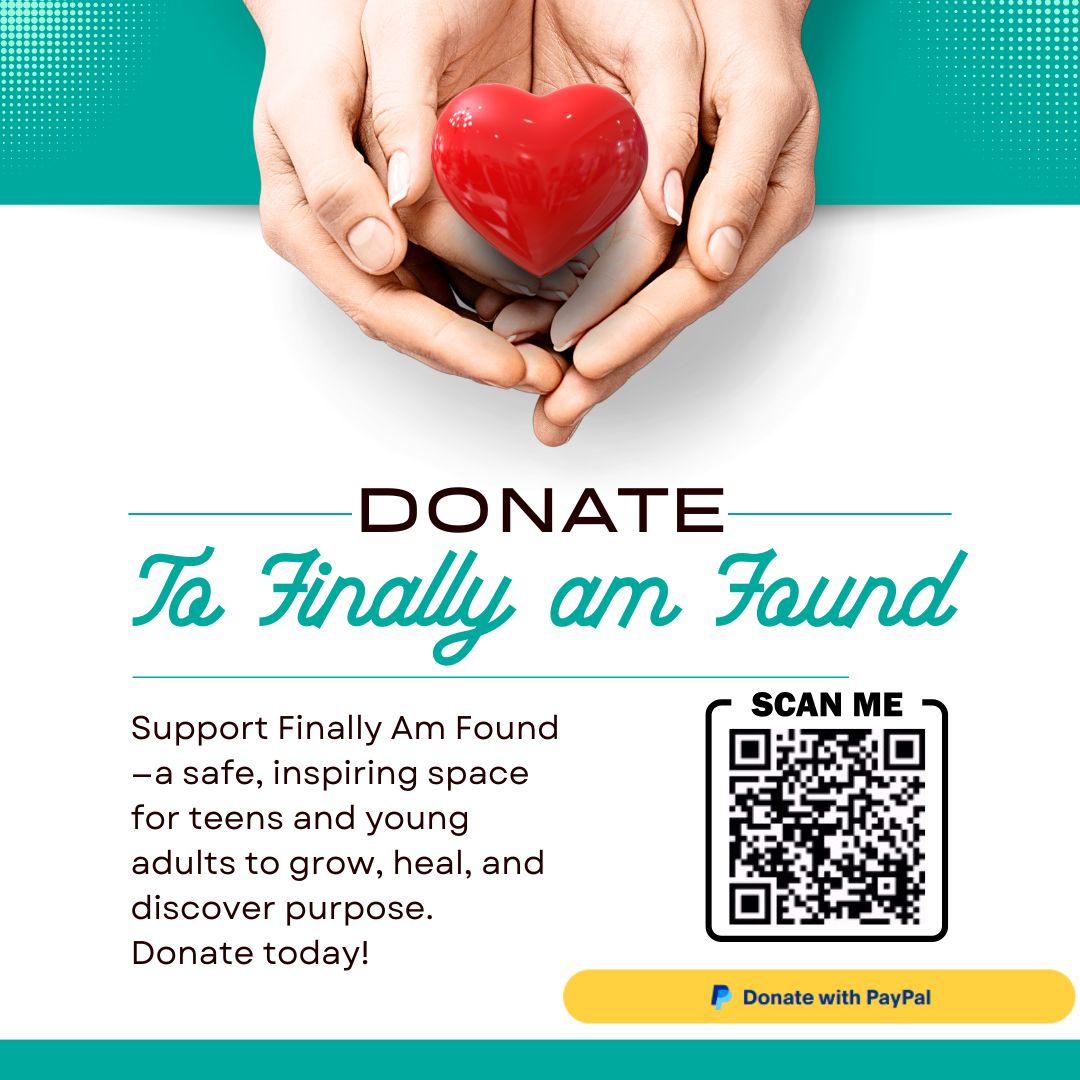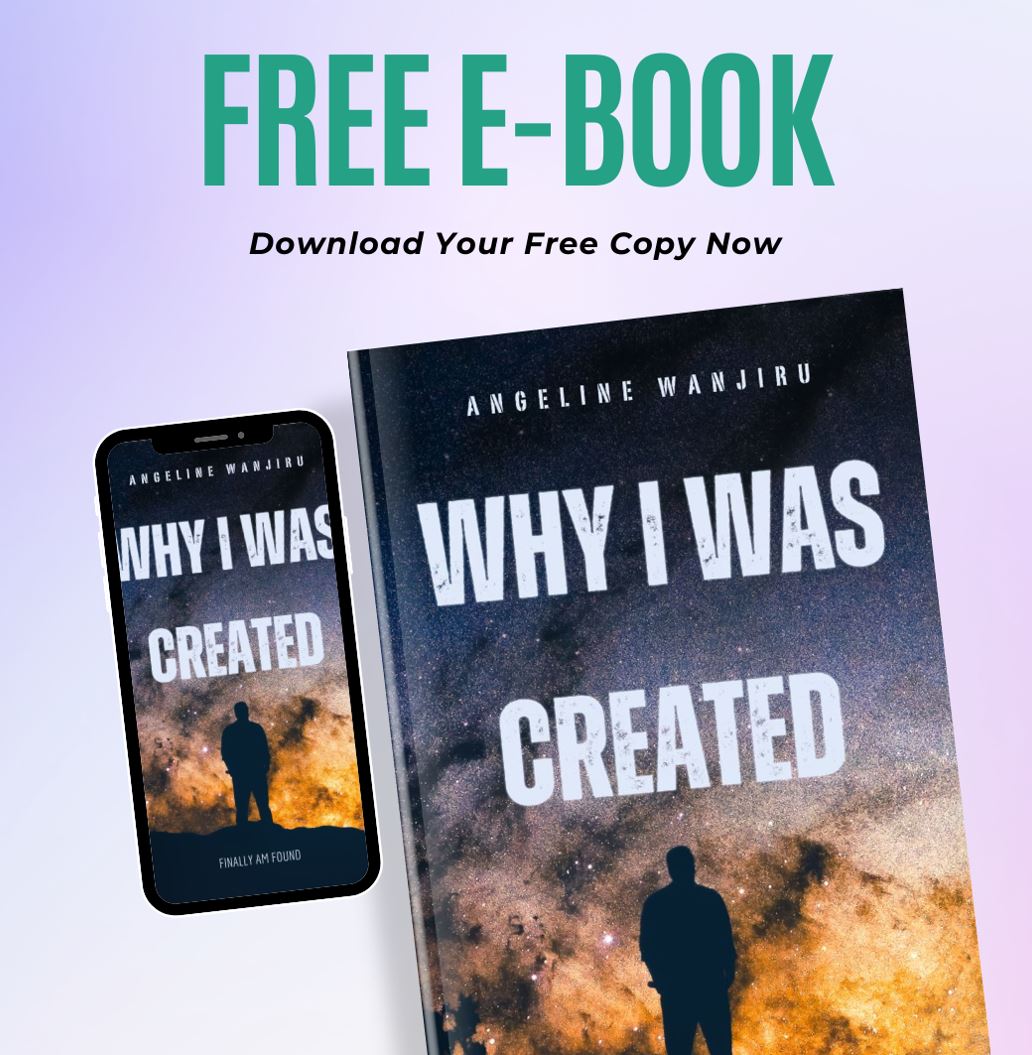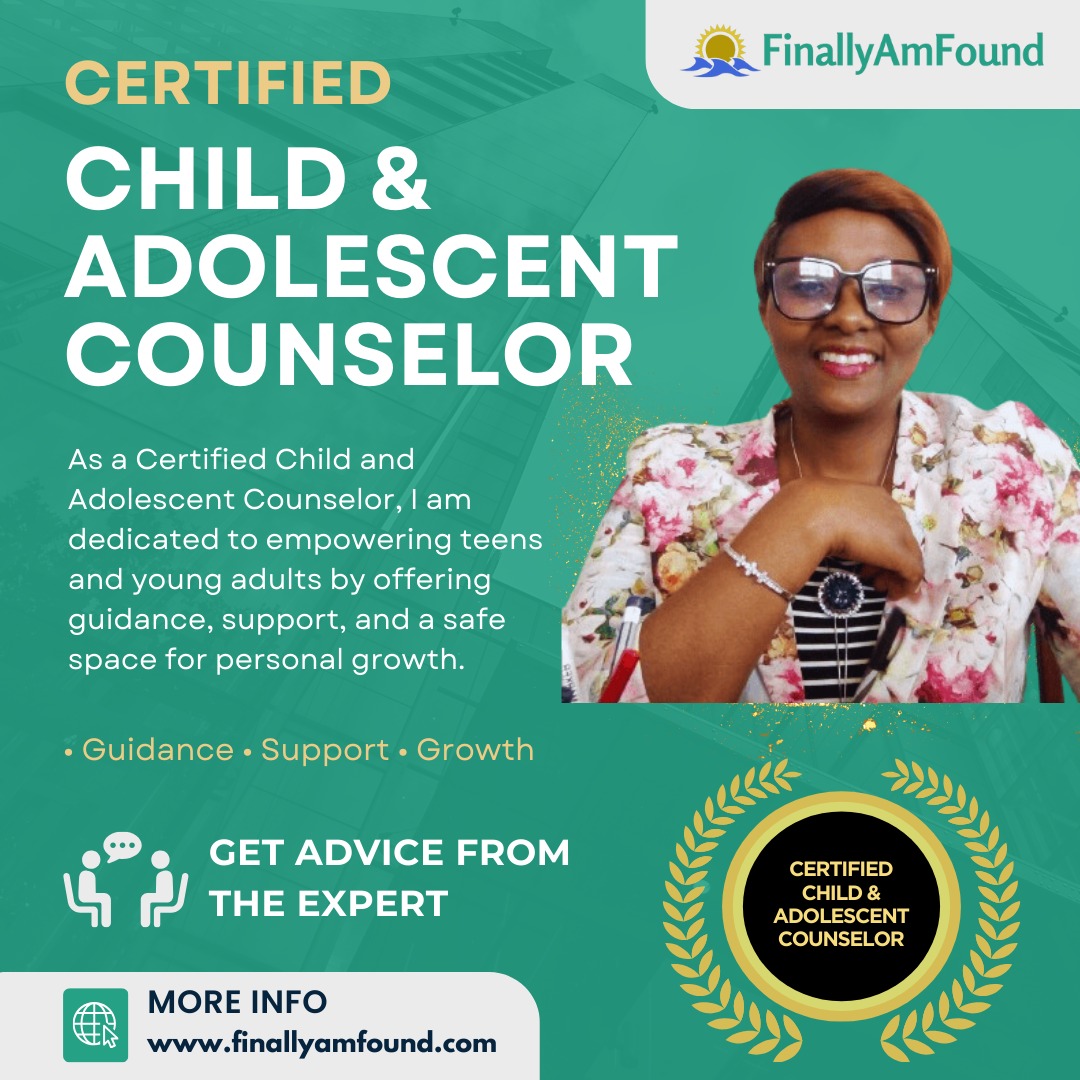We will discuss a specific type of pain that is not physical; regardless of age, anyone can experience it. Let’s begin by understanding the meaning of pain or suffering in general. Pain or suffering refers to the experience of distress, discomfort, or hardship, whether physical, emotional, or psychological. These are natural responses, but how you handle them makes a difference.
Why Talk About Pain
Understanding your pain helps you develop a healthy and realistic understanding of the challenges and hardships you face in life. It enables you to build resilience, coping skills, and a growth mindset, which will serve you well in the face of adversity. Additionally, it helps reduce the stigma and shame around pain and suffering and encourages young people to seek help and support when they need it.
This experience can be universal and is not limited by age. Despite its complex nature, pain and suffering are fundamental aspects of human existence that can impact one’s overall well-being and quality of life. Recognizing and addressing pain and suffering is important to promote healing and recovery.
Pain as a Catalyst for Growth
Experiencing pain, whether physical or emotional, can be a challenging experience. However, it is also true that pain can catalyze personal growth and development.
Increased Self-Awareness
Pain can bring attention to areas of our lives that need improvement or change. It can help you identify your limitations, weaknesses, and areas that you may have been ignoring or neglecting, such as social, physical, spiritual, emotional, or mental well-being. Upon reflection, self-assessment can have a positive impact on your overall well-being and boost productivity. Therefore, take time to assess yourself occasionally.
Ask yourself simple questions like, “Arnold, (call your name) what are you feeling?” Then answer exactly what you are feeling, whether it’s sadness, rejection, confusion, irritation, etc. Keep questioning yourself, asking “Why are you feeling this way?” Continuing this self-dialogue can help you find a solution, either on your own or by seeking help from others. We all have the power within to realign ourselves.
Improved Resilience
Overcoming pain and hardship can build mental and emotional resilience. It can help us develop coping mechanisms, problem-solving skills, and a greater ability to handle stress and adversity.
Deeper Empathy and Compassion
Experiencing pain can increase our empathy and compassion for others who are also suffering. It can help us connect with others on a deeper level and foster a greater sense of community and support.
Personal Growth
Pain has the incredible potential to be a powerful thing for personal transformation and development. It can compel us to diligently reevaluate and reassess our core values, priorities, and aspirations. This introspection often results in making significant changes that ultimately lead to a life that is more enriching, purposeful, and deeply satisfying.
Greater Appreciation for Life
Experiencing pain can help us appreciate the good times and the simple pleasures in life. It can remind us to be grateful for what we have and to cherish the moments of joy and happiness.
Coping Mechanisms
Understanding Your Coping Mechanism
Understanding your coping mechanism is essential because it allows you to develop effective strategies that work for you, for managing and overcoming pain. By being aware of how you typically respond to difficult situations, you can tailor your coping techniques to better address the specific challenges you are facing. This self-awareness empowers you to make informed decisions about seeking support, implementing self-care practices, and accessing resources that can help you navigate through pain and adversity. Ultimately, understanding your coping mechanism gives you the insight and agency to take proactive steps toward healing and resilience.
Experiencing Pain May Draw Us Nearer to God
Pain reveals our vulnerabilities, stripping away facades, and prompting many to turn to God. In times of profound hurt, self-reliance often fades as we recognize our limitations. This vulnerability can guide us to seek God’s solace, strength, and empathy. Through prayer, we articulate not only our pain but also a fresh reliance on God’s might. In this sacred exchange, we find a sanctuary where our anguish is met with divine understanding.
Through the language of pain, we discover a profound connection that transcends the limitations of our mortal existence. In the hushed moments of prayer, we surrender our burdens and find a peace that surpasses all understanding. In the quiet sanctuary of our souls, we lay bare our deepest wounds, trusting in the divine presence that enfolds us.
As we release our fears and doubts into the hands of the eternal, we are reminded that even in our darkest moments, we are not alone. Through the gentle whispers of faith, we are guided towards a path of healing and restoration, where the light of hope shines brightly amid despair. In the sacred dance of surrender and grace, we find solace in the arms of a love that knows no bounds, a love that carries us through the storms of life with unwavering strength and compassion.
Emotional and Psychological Pain Beyond Your Control
Emotional Pain
It is a state of intense negative feelings that originate from non-physical sources. It can be just as debilitating as physical pain. However, it’s experienced differently and can encompass feelings of distress, sadness, anxiety, despair, hopelessness, guilt, frustration, shame, fear, and despair although everyone experiences it differently. It can stem from various losses, such as relationships, ideas, jobs, or hobbies tied to one’s identity. This can weigh heavily on the person affected, impacting their reasoning, judgment, and quality of life. Unfortunately, many people reach a point where they are unable to control their pain emotions and may project anger, hate, isolation, and overall unproductivity. Oftentimes, they struggle to explain what they are feeling.
Disenfranchised Pain
Disenfranchised pain is the emotional and psychological pain that is not recognized or validated by society. It’s a kind of grief or emotional hurt that feels invalidated or unseen by others. This lack of validation can intensify the pain and make the healing process much harder. It stems from a loss or experience that isn’t widely recognized as deserving of grief or emotional support.
Examples of Disenfranchised Pain
Loss or Breakup
Breakup with a significant other, especially if the relationship wasn’t widely accepted. This could be due to factors like long-distance relationships, or those disapproved of by family. The pain of the breakup might be dismissed because the relationship wasn’t “official” or seen as serious or necessary by others.
The Death of a Friend or Loved One Who Wasn’t a Close Family Member
Teens often have strong bonds with friends, but their grief over losing them might not be fully acknowledged by adults who weren’t as close to the deceased.
Moving Away from a Close Friend Group
This can be a significant loss for teens, but the disruption to social life might be minimized by adults who may not understand the importance of those connections.
Pain of Absentee Parent
The absence of a parent can cause a lot of emotional pain for a child. This can come out as sadness, anger, confusion, or trouble trusting others. It can be a complex issue with lasting impacts, but this can be resolved.
Academic or Social Pressures
Young adults who are under a lot of pressure to perform academically may experience disenfranchised pain if they feel that their struggles and challenges are not recognized or validated by their peers, teachers, or parents. Feeling like a failure due to academic struggles: The pressure to succeed academically can be immense, but a young person with learning difficulties or struggling subjects might feel their pain of disappointment or frustration is dismissed with comments like “try harder.”
Social Ostracization or Bullying Due to Not Fitting In
The emotional toll of being bullied or excluded can be significant, but it might be belittled by adults who downplay the severity of teenage social dynamics.
Feeling Unheard About Mental Health Concerns
Young people struggling with anxiety, depression, or other mental health challenges might not receive the validation they need from adults who don’t fully understand or minimize their struggles.
Social Isolation
Young adults who feel socially isolated or excluded may experience disenfranchised pain if they feel that their experiences of loneliness and rejection are not taken seriously by those around them.
Identity and Sexual Exploration
When someone is trying to figure out who they like or how they see themselves, they’re just taking the time to think about their body, looks, emotions, attractions, and experiences. It can be a rough and emotional time, especially for teens and young adults, as they are in a critical development stage. They may not know whether to have a boyfriend/girlfriend, whether it’s normal or not, whether it’s the right time, or whether it’s allowed. They might not know how to talk about it, and their families or people around them might not understand or know how to help.
Feeling Pressures to Conform to Gender Stereotypes
Many teenagers who don’t fit neatly into traditional gender roles may feel pressure to conform to societal expectations. For example, there’s often an expectation that women should primarily be caregivers and homemakers, while men are expected to be the primary breadwinners.
There are also specific traits and behaviours associated with each gender, such as women being expected to be nurturing and emotionally sensitive, while men are expected to be strong and stoic. This can lead to frustration and pain for those who don’t conform to these expectations. Young men may feel pressured to suppress their emotions, avoid behaviours perceived as feminine, or pursue traditionally “masculine” careers, while young women may face pressure to prioritize caregiving roles, conform to specific beauty standards, or pursue careers in female-dominated fields such as nursing or teaching.
This can be a source of deep emotional pain that is often not fully understood by others. The loss of a dream career path due to social or financial limitations. Young people might have to give up on career aspirations due to things like limited access to education of their choice or societal expectations about their future. This grief might not be recognized as valid.
Gender or Age Discrimination in the Workplace
Gender or age discrimination in the workplace or business environment is a significant issue that involves treating individuals unfairly due to their gender or age. This form of discrimination can take on various manifestations, including unequal pay, lack of opportunities for advancement, and being overlooked for positions based on stereotypes or prejudices. These occurrences are unfortunately quite common, but they can have a significant impact and are deeply hurtful.
Infidelity
Infidelity is an emotionally challenging ordeal. It can shake the foundation of trust and security in a relationship, causing significant distress and heartache for those involved. Dealing with infidelity can be an incredibly tough experience. It has the power to shake the very core of trust and security within a relationship, leading to immense distress and heartache for everyone involved. The effects of infidelity can be long-lasting, impacting both individuals and the relationship as a whole. It’s a deeply complex and sensitive issue that requires careful consideration and understanding.
Socioeconomic Status
Young adults from low-income families or communities may endure significant emotional distress when confronted with systemic inequality, discrimination, or limited opportunities within their daily lives. They often feel neglected amid others’ preoccupations with their affairs.
Trauma
Young adults who have undergone trauma, such as sexual assault or abuse, particularly from a relative or family friend, may experience marginalized pain if they feel that their experiences are not acknowledged or validated by those around them. They may also encounter stigma and discrimination as a result of their experiences.
Racial and Ethnic Discrimination
Racial and ethnic discrimination can cause significant pain for teenagers or young adults who belong to marginalized racial or ethnic groups. For example, individuals who are African in predominantly white communities, or Arabic in predominantly Indian communities, may experience disempowering pain when they encounter discrimination, prejudice, or systemic inequality in their daily lives.
Illness or Deformity
Young adults grappling with health challenges or deformities may encounter disenfranchised suffering if they perceive that their encounters are disregarded or invalidated by their immediate circles. They may also confront stigma and discrimination as a consequence of their inability to socially interact in a typical manner.
Disturbing Thoughts and Nightmares
Disturbing thoughts and nightmares can be caused by various factors such as stress, anxiety, trauma, mental health issues (like depression, anxiety disorders, PTSD), medications, substance abuse, disorders (including sleep apnea, and insomnia), media exposure to disturbing things, unknown causes, and life transitions. Young people experiencing these symptoms may feel uncomfortable and afraid to express them due to fear of judgment from others, hence carrying pain with them.
Experiencing constant distressing thoughts and recurring nightmares can result in a profoundly agonizing and solitary life that others may struggle to understand. This can lead to feeling detached from those around you, as if you are imprisoned in your mind, unable to break free from the troubling thoughts that haunt you day and night. But there is help that can provide relief and guidance in navigating the overwhelming darkness that consumes you. Remember, you are not alone in your struggle, and there is hope for healing and recovery.
Coping Mechanisms
Seek Truth in Christ
Spiritual direction can be a valuable resource for those who are experiencing emotional and psychological pain. If we go back to the beginning of creation, we see that God created man in His image and provided him with everything he needed, free from pain and death. However, through disobedience, humans invited pain and suffering into their lives. Through His unconditional love, Jesus Christ was brought to set us free from sin and death for those who believe.
Believing in Him means being freed from the power of sin and death, and experiencing freedom from negative emotions, destructive behaviors, and harmful thinking patterns. You can achieve this by resisting the devil, and he will flee from you. We know through God’s word that the devil comes to steal, kill, and destroy by tormenting and lying. You can resist by first knowing the truth and understanding your identity in Christ (as He is, so are you, 1 John 4:17-21).
The devil tempted Jesus Christ by whispering to Him, saying “Throw yourself down and everything will be yours” (Matthew 4:2-11), but he was not able to deceive Him. Even in the present time, the devil still roams around and can whisper negative things to you such as “you are useless,” “you are weird,” “you are ugly,” “you are shy,” “you are too thin/fat,” “kill yourself,” “you are not smart,” etc. As a believer, you should believe what Christ says about you – that you are made in God’s image and that you have the image of God in you, which is Christ, power, love, faith, joy, wisdom, and confidence (2 Corinthians 8:7-15). Know that through Christ, you are a daughter/son of Almighty God.
Remember the Bible Story of the Seven Sons of Sceva
Acts 19:13-16 tells of some Jewish exorcists who attempted to expel demons by using the name of Jesus, whom Paul preached. They believed saying “We exorcise you by the Jesus whom Paul preaches” would hold power. Among them were seven sons of a high priest named Sceva. When they tried this on a possessed man, the evil spirit responded surprisingly. It acknowledged knowing Jesus and Paul, but questioned who they were, implying their lack of genuine connection to that power.
So in short, know who you are in Christ. Be His student, and He will guide you to the whole truth. Talk to God anytime, anywhere, use your own words, address Him as you would address a loving father, not a military policeman. He hears and understands. Ignorance is the loophole for destruction. By doing so, you will know how to manage pain and even resist it, and not let it control you. The devil is powerless without you; he needs your spirit, soul, mind, and body to achieve his plans. Don’t give in by aligning yourself to Christ.
Embrace Vulnerability with Joy
It’s easy to feel like you need to be perfect, especially as a young person, but you create space for genuine connection, self-acceptance, and ultimately, a richer and more fulfilling life. Instead of seeing difficulties as roadblocks, view them as opportunities to grow closer to God. When you feel weak, it’s a chance to rely on His power. This shift in perspective can make a big difference. Just like Paul found purpose in his ministry despite the thorn, discover what matters most to you. Is it helping others, pursuing a passion, or making a difference in your community? Focusing on your “why” can give you the strength to persevere through challenges.
Engage in Personal or Group Study of the Bible
You will be enlightened and learn many things and revelations to lead a productive life here on earth as God intended, with love, power, and self-discipline. In walking with the Holy Spirit, you will never miss a step. He will always be your teacher, mentor, best friend, and protector.
Challenge Negative Self-Talk
These thoughts may come from your mind or societal messages. Combat these thoughts with affirmations that recognize your feelings and experiences. Your thoughts can shape your reality, so don’t give in to negativity. Surround yourself with people who accept you for who you are. On social media, interact with those who share your values and beliefs, and avoid groups that promote unhappiness, negativity, and pain. Choose to listen to uplifting music/podcasts/videos rather than those that revolve around suffering. In life, it’s important to be purposeful and mindful.
Gratitude
Focusing on gratitude can help you shift your perspective and find joy and positivity in your lives, even amid pain and suffering. This can include keeping a gratitude journal, sharing gratitude with others, or practising gratitude meditations.
Self-Care
Engaging in self-care activities, such as exercise, meditation, or creative expression, can help you manage your emotional and psychological pain. These activities can provide a sense of calm and relaxation and can help individuals feel more grounded and centred.
Mindfulness
Practicing mindfulness can help you become more aware of your thoughts and emotions, and can help you develop a greater sense of acceptance and compassion towards yourselves. Mindfulness practices can include deep breathing, progressive muscle relaxation, or guided imagery.
Self-Expression
Engaging in creative activities, such as writing, drawing, or painting, can be a powerful way for teens and young adults to express their emotions and experiences. This can help you process your pain and gain a greater sense of understanding and insight.
Advocacy
Taking action to address the systemic issues that contribute to disenfranchised pain can be a powerful way for young people to feel empowered and in control. This can include speaking out against discrimination, joining advocacy groups, or engaging in community activism.
Self-Compassion
Practising self-compassion can help develop a more positive and accepting attitude towards yourself. This can include practising self-kindness, recognizing your common humanity, and cultivating mindfulness.
Forgiveness
Practising forgiveness can be a powerful way for teens and young adults to let go of anger, resentment, and other negative emotions that can contribute to emotional and psychological pain. This can include forgiving others, as well as forgiving yourselves.
Seeking Support
Connecting with others who have had similar experiences can be a powerful way to feel validated and understood. This can include joining support groups, talking to a trusted friend or family member who understands, or seeking out a mental health professional. Seeking out professional help, such as therapy or counselling, can be a valuable resource for those experiencing emotional and psychological pain. Mental health professionals can provide evidence-based treatments, such as cognitive-behavioural therapy or dialectical behaviour therapy, that can help individuals manage their pain and build resilience.
Focus on Your Self-Development and Awareness
It’s important to focus on your self-development and awareness as a young person. Recognizing your strengths and weaknesses allows you to make informed decisions about your life. Understanding your emotions empowers you to manage them healthily. Building healthy habits that nourish your body and mind is crucial for overall well-being. This journey of self-development is full of growth and learning. Embrace the challenges, celebrate your achievements, and focus on becoming the best version of yourself. Value yourself in every circumstance and keep assessing your mindset. Be your biggest cheerleader. Do things that fill your cup, and you will be able to give from a filled cup, and that is total joy.
Accept with Peace What You Can’t Change
It’s about recognizing there are situations, people, and events beyond our control. Fighting them is a recipe for frustration and wasted energy. Instead, acceptance allows you to find peace. We acknowledge reality as it is, without judgment. This doesn’t mean we have to like what can’t be changed, but it lets us focus our energy on things we can influence, like our own reactions and how we move forward. It’s a powerful tool for reducing stress and pain and living a more enjoyable, fulfilling life.
Prayer
Dear God, my Dad,
I come to you today with a heavy heart, feeling the weight of this pain. You see me, hear me, and love me just as I am. I ask for your comfort and peace amid my struggles and for the strength to keep going even when it feels hard. Set me free from this burden.
Help me to remember that I am not alone and that you are always with me, even in the darkest of times. Give me the courage to reach out for help when I need it, and the wisdom to know when to seek support from others.
I pray for healing and restoration, that my soul and mind would be amended, and my spirit renewed. I ask for your guidance as I navigate the challenges of life, and for your wisdom as I make decisions about my future. Help me manifest your power, love, and self-discipline to overcome and enjoy this life.
Assist me in understanding a sense of purpose and meaning so that I would understand my value and worth. Help me to see the good in myself and others, and to extend grace and compassion to those around me.
I believe in your kingdom within me and may your will be done in my life. May I be an instrument of your peace, bringing hope and healing to a world that so desperately needs it.
In Jesus Christ’s name, I pray. Amen.
Hey, I’m Angeline, your RN and founder of Finally Am Found. With a heart for mentorship, I’ve been guiding teens and young adults since 2017. As a Registered Nurse, I blend medical expertise with personal experiences to create a Christ-aligned space for self-discovery. Connect with Angeline on Facebook and let the journey to self-discovery begin!














